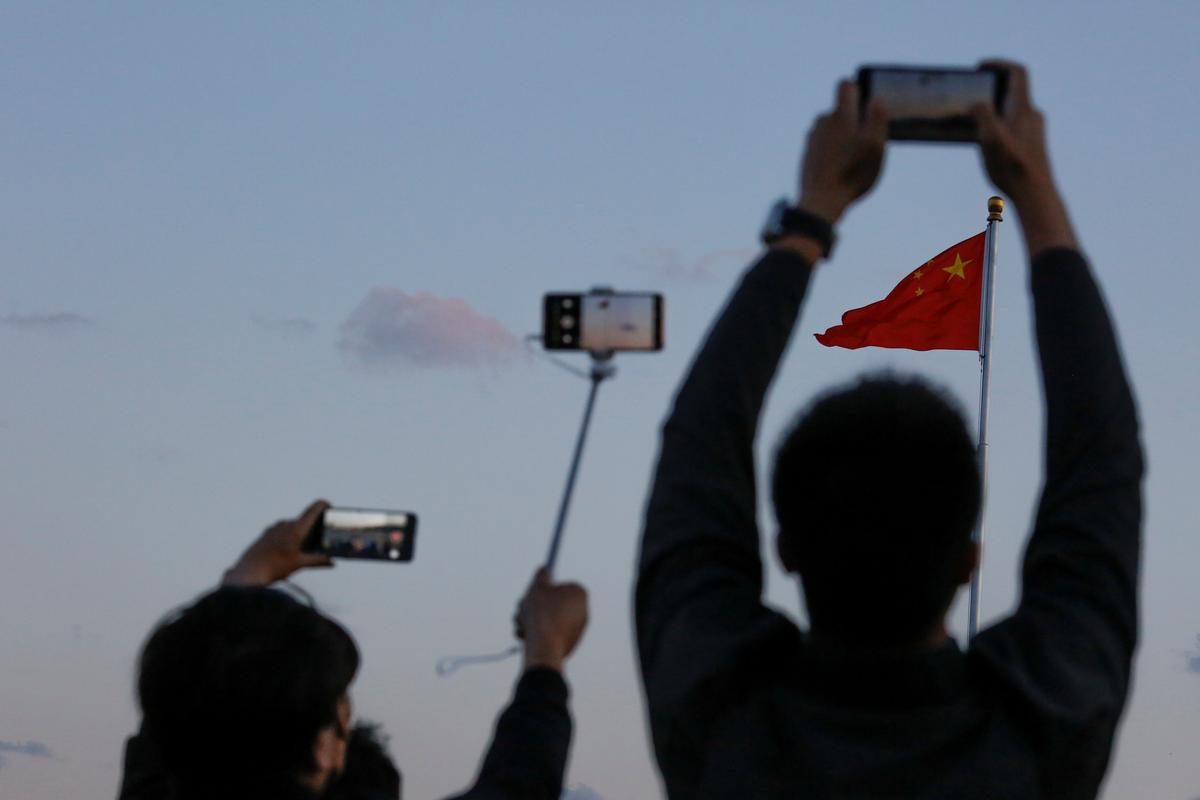SINGAPORE/BEIJING (Reuters) – Diplomats returning from overseas postings don’t usually receive special attention at China’s Ministry of Foreign Affairs, a vast government bureaucracy with thousands of staff.
FILE PHOTO: People take pictures of the lowering ceremony of the Chinese national flag that is held daily at sunset in Tiananmen Square in Beijing, China May 19, 2019. REUTERS/Thomas Peter/File Photo
But when Zhao Lijian, a diplomat known for his pugnacious social media presence, finished a posting in Pakistan in August, he received an enthusiastic welcome in Beijing. A group of young admirers at the ministry gathered at his office to cheer his return, according to two people familiar with the matter.
That admiration was fueled in part by a Twitter spat he had engaged in a month earlier with Susan Rice, the national security adviser to former U.S. President Barack Obama. Each accused the other of being “ignorant” and a “disgrace”.
Now a foreign ministry spokesman, Zhao has come to represent a new generation of diplomatic hawks in China, challenging the restraint that long characterized the country’s engagement with the world, according to a dozen current and former ministry officials and government researchers who spoke with Reuters.
Their emergence has caused a rift with the old foreign policy establishment, amid worries that increasingly assertive rhetoric could put the country on a dangerous collision course with powers like the United States, they said.
The shift followed instructions that President Xi Jinping issued diplomats in a memo last year, calling on them to show more “fighting spirit”, said two people with direct knowledge of the matter.
“This is the first time since 1949 that the ‘new hawks’ have the power to reshape China’s diplomatic policy,” said Qin Xiaoying, who was a director of the ruling Communist Party’s international propaganda department and is now a researcher with the China Foundation for International and Strategic Studies in Beijing.
Driving the shift is the widespread feeling among many Chinese that the United States wants to contain China’s rise. Aggressive pushback by diplomats on issues that provoke nationalistic sent

